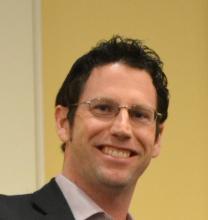What Is It
Recent revelations confirm what many already suspected: not only is Big Brother watching you, he is also potentially reading your emails, listening to your phone calls, mapping your personal networks, and tracking your every move. While many see whistleblowers as heroes, others see them as criminals who ought to be severely punished. So, how should we treat whistleblowers who break the law for moral or political ends? How do we adjudicate between national or corporate security and individual rights? And what kind of rights and responsibilities does a proactive citizenry have when confronted with injustices committed by the state? John and Ken blow the whistle on Christopher McKnight Nichols from Oregon State University, author of Promise and Peril: America at the Dawn of a Global Age. This program was recorded live at OSU in Corvallis.
Listening Notes
Today’s show, filmed at Oregon State University, begins with a brief commentary on Edward Snowden’s reveal of information. The incident prompted many to believe that their right to privacy was being violated and that Snowden should be revered; others considered Snowden to be a traitor who revealed secrets that might jeopardize national security. So, John asks, in light of these concerns, what is privacy (and do we have a right or privilege to it?)? Ken suggests that a distinction be made between two areas of privacy – the personal choices we make versus what we think, feel, and say privately. Naturally, says Ken, we have a right to the latter. But, John questions, don’t Americans, especially teenagers, disclose everything about themselves in social networks, therefore making the private public? Ken disagrees, saying that what individuals post on Facebook, Twitter, or other sites is what they choose to disclose – it is their choice. Ken and John then discuss the difference between social media and a communication method like phone calls, with Ken explaining that there are different expectations of privacy for both means. John then asks what the big deal in collecting metadata is and what exactly it is that Ken fears from the collection of information – misuse, perhaps?
John and Ken welcome Christopher McKnight Nichols, Professor of History at Oregon State University and author of Promise and Peril: America at the Dawn of a Global Age. John first asks Christopher how he got interested in the topic of surveillance. Christopher explains that his interest goes back to high school, when he was editor for his school newspaper and noticed that faculty and administration often censored what his peers wrote, sometimes for good, sometimes for ill. This, Christopher says, made him appreciate the conundrum of the “leakers” of information and brought up questions in him such as how said leakers should relay information to the public, if at all. John then asks Christopher whether the state of privacy in America is as bad as we think it is or even worse; Christopher agrees with the latter, explaining that never before have levels of surveillance by the state and by private entities and corporations been so high. Ken wonders whether this is because of our increased technological capacity, and Christopher is in agreement.
Ken asks Christopher what a right to privacy means in the context of the modern world, and Christopher asks the audience whether we should think of privacy rights in terms of Fourth Amendment type of rights such as property rights or a right to having your body secure. John then points out that the word ‘privacy’ does not figure in the Constitution. There is freedom of speech and freedom of thought, as well as a mention of protection of “property and effects,” but what does the word ‘effects’ even refer to? If it means things one created, like letters, then emails would also have to be included, and would that not mean that surveillance of email is unconstitutional? Christopher brings up the example of Rand Paul’s recent class action suit arguing that single-warrant wiretapping in this way is unconstitutional. Then, Ken asks Christopher why the government has such an interest in gathering this information from residents, and Christopher speaks about the security concerns post 9/11. There may not be a particular need to collect the data, says Christopher, but the government has the means to pursue the information, so it will. John is then concerned about why such surveillance is even necessary for security purposes if car accidents and other events cause more deaths than terrorist attacks on U.S. soil. Christopher explains that the government may be tip-toing on the edge of what is permissible.
John and ken welcome live audience participation. Christopher, John, and Ken grapple with questions regarding whether the government is using a reactive approach, whether knowing we are being watched alter how we behave or think, the importance of self-censorship, and the differences between surveillance by corporations versus by the government. To close the show, John and Ken comment on whether surveillance can be democratically controlled.
- Roving Philosophical Report (Seek to 6:57): Caitlin Esch gives an overview of the countless new technologies being manufactured to collect limitless data, what with Google Glass, FuelBand, or Fitbit. She explores the tension between early adopters of such technologies and individuals who want to preserve their privacy and talks to Richard Koci Hernandez, Professor of New Media at UC Berkeley, on the inevitability of such devices.
- 60-Second Philosopher (Seek to 46:36): Ian Shoales discusses Google’s own Top 10 Google Glass myths and just how irritating those Explorers can be.



